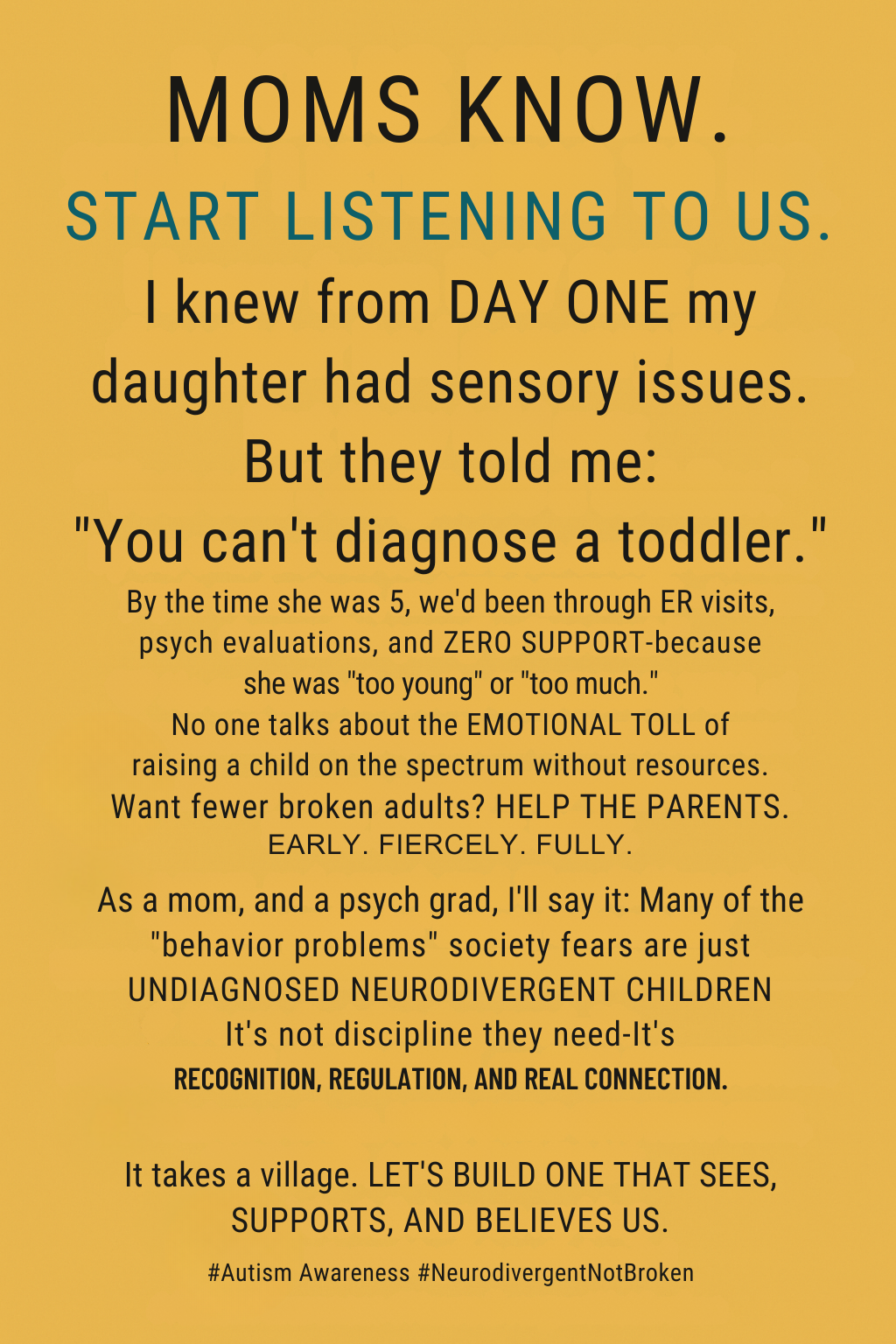I Knew from Day 1 - (Part of) An Autism Mom's Story
They tell you that you “can’t diagnose a toddler.”
But some of us knew from day one.
I knew my girl had sensory issues the moment she came into this world.
By the time she was a toddler, I could see the retention struggles. The regulation issues. The overwhelm.
But I had no support. No help. Just judgment and misinformation.
Let’s be clear: most doctors are clueless when it comes to autism — especially if it’s not physical or textbook. If they haven’t lived with someone on the spectrum, they miss it entirely. And we, as parents, are left navigating absolute hell with zero guidance.
I still remember taking her to the ER for an emergency psych eval during one of her episodes. We spent the night.
They recommended inpatient care… but no facility would take her.
She was “too young.” “Too violent.” And they couldn’t hold her overnight unless I stayed too.
It wasn’t until she turned five that a full team — from her school and Fraser Institute — finally got her the help she needed. And only because we had state health insurance. Without that? God only knows.
This is where cycles begin.
If you want fewer “problem children” or “juvenile delinquents”… start by helping the mothers who are crying out for support when their children are still young. Because I promise you: undiagnosed neurodivergence plus trauma and misunderstanding is the recipe for a life of disconnection and destruction.
Had I not fought as hard as I did — for her diagnosis, for her safety, through the courts against her biological father in a system that doesn’t understand autism — I don’t know where we’d be today. And I don’t want to know.
After earning a psychology degree and raising a child on the spectrum, let me say this plainly:
You can’t convince me sociopathy (Antisocial Personality Disorder) isn’t what happens when autistic children are never seen, never understood, and never taught the emotional regulation and social skills they need in childhood, when they need to learn them.
Children who never felt connected to anyone because no one ever took the time to decode their different wiring.
With some kids, it’s more obvious. There are milestones to track. But for so many others — especially girls — the signs are missed, masked, or mistaken for “bad behavior.” And the field of psychology in this country? Extremely lacking.
Moms know.
Start listening to us. Start trusting us. Start helping us.
It takes a village — not just to raise a child, but to model the social fabric they desperately need to see. Cooperation. Compassion. Community.
That’s how we change the future.
One child. One mother. One moment of being believed at a time.

